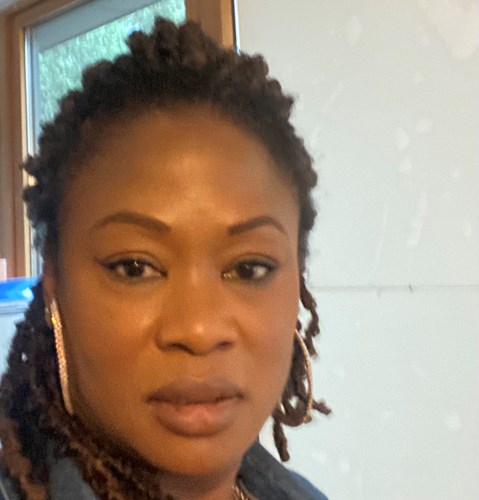International Neurodiversity Week - Funmi Kadiri discusses her experiences and advice

Funmi Kadiri is an administrator at Essex Partnership University NHS Foundation Trust and has dyslexia, dyscalculia, and dyspraxia.
Dyslexia primarily affects reading and spelling skills, including understanding, processing and remembering information.
Dyscalculia is a difficulty in understanding numbers. And dyspraxia affects co-ordination, balance and movement.
As part of Neurodiversity Celebration Week (18 to 24 March), she shares her experiences and advice.
My career background is in pathology. As a woman of colour who has all the Ds - dyslexia, dyspraxia and dyscalculia - my journey to EPUT has had a lot of twists and turns.
Previously, I have had a lot of colourful words said to me due to my dyslexia.
There have been times during my career where I have not had the right support at the right time.
I felt judged when I asked for what I needed to enable me to do my job. To hear the words ‘No’ or ‘Why?’ felt akin to being forced to climb a tree without a ladder.
I have felt like I was often judged and compared to people without dyslexia.
Without reasonable adjustments in the past, I had to develop coping mechanisms.
This eroded my confidence and made me shut down and struggle in silence. I have heard this happens to a lot of people like me.
But with the right support, we can be as good at our jobs as people without dyslexia.
In one of my previous roles, in addition to working my full-time job I became the lead for dyslexia and mental health, and championed the needs of staff from black and ethnic minority backgrounds.
I worked with amazing people on this project.
I did a number of other roles before joining EPUT. I am super happy in my job here. I am not judged on my learning differences, and I can be myself. My managers have shown great empathy and understanding towards me with all the support you need, and I can't ask for more.
I encourage people to just shout out if they need help - the right support is out there for both managers and individuals, you just need to ask.
These are some of the things that really help me:
- Open communication
- When there is a complex or detailed topic or task they would like me to complete, they make a short audio clip or video to explain what they need me to do. This really helps me to understand what they need, rather than reading a long email.
- Giving verbal instructions or requests also helps
- Letting me ask as many questions as I need
- Making sure I am not overloaded with a lot of information at once
- Understanding how I process information
- Using bullet points in written communication and short emails helps me focus on the most important things I am being asked to read
- We make use of the Health Adjustment Passport, which helps to identify what support and changes you might need in your job.
I want to share some other reasonable adjustments that could help you if you are neurodivergent, or are supporting someone who is neurodivergent.
But remember that one hat doesn’t fit all, everyone is different.
- Contact Access to Work - it is best to contact Access to Work before starting a new job, wherever possible. Employers will be reimbursed for any equipment bought under the scheme.
Access to Work also provides coping strategies training to help people with physical and cognitive disabilities, neurodiversity and mental health challenges. These help you to overcome difficulties and minimise the impact of your health condition, while maximising your skills and potential. - Make a referral to Occupational Health
- Look at the Health Adjustment Passport
- Sign up for training to learn more about disabilities and neurodiversity
- Organise your workload to prevent you becoming overwhelmed
- Use a dyslexia reading ruler to remove the harsh contrast of black text on a white background. This will make it easier to read text more comfortably.
- Accessibility tools can go a long way to making life easier. Tools on PDFs and Microsoft Outlook that read back to you are really helpful. Contact your IT department.
Under the Equality Act 2010, the legal definition of a disabled person is someone with a “physical or mental impairment that has a substantial adverse impact” on their ability to carry out “normal” day-to-day activities. The disability must have lasted, or will last, at least 12 months.
People with neurodivergent conditions may meet this definition.
You have the right not to disclose any disability or difference. However, making your manager aware will enable them to get you the right support at the right time.
Where to get more support and information
Below are some websites to find out more about dyslexia, dyspraxia and dyscalculia and advice on identifying reasonable adjustments.
The Neurodiversity Celebration Week website has some useful fact sheets and information for parents and carers, children, educators and employers.
#WeCare - We want everyone who uses our services to have the best possible experience. Our care will be therapeutic, tailored to each patient’s individual needs, and focus on what they need to feel better.
Our five-year Strategic Plan sets out our priorities and commitments to deliver the highest quality and safest care possible.
